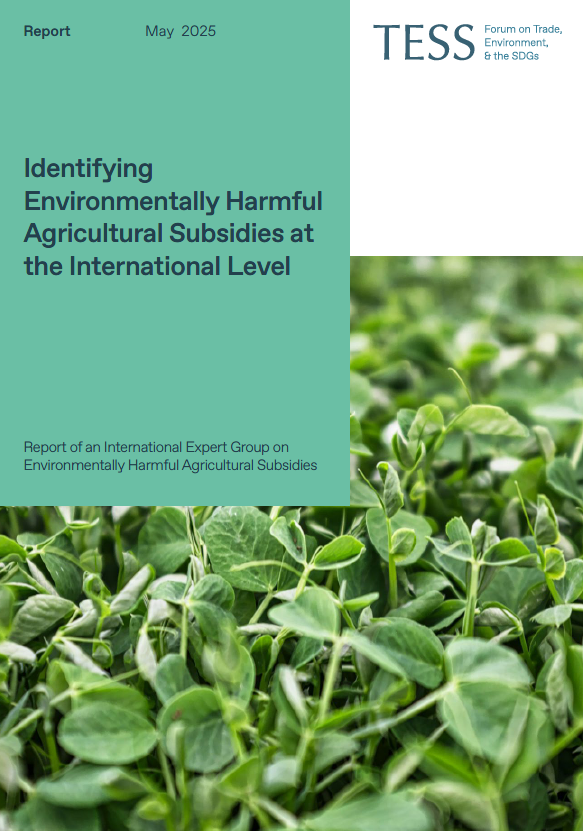Identifying Environmentally Harmful Agricultural Subsidies at the International Level
- Publication
- Citation
International Expert Group on Environmentally Harmful Agricultural Subsidies. (2025). Identifying environmentally harmful agricultural subsidies at the international level. Forum on Trade, Environment, & the SDGs (TESS).
How can international policy better align agricultural subsidies with environmental and sustainability goals? This report addresses that question by synthesising the current state of knowledge and offering concrete approaches for identifying and reforming environmentally harmful agricultural subsidies.
Published on 4 June 2025, the report was prepared by the International Expert Group on Environmentally Harmful Agricultural Subsidies, convened by TESS. Anthony Cox (Senior Policy Advisor, Ecologic Institute) contributed to this report as a member of the International Expert Group.The group brought together leading experts from academia, think tanks, intergovernmental and stakeholder organisations, representing diverse regions and perspectives.
The report begins with a comprehensive review of how agricultural subsidies impact the environment and explores trade-offs between competing policy objectives. It then proposes criteria for defining harmful subsidies and outlines collaborative approaches for international dialogue and action — including soft law tools, voluntary commitments, and enhanced transparency mechanisms.
The findings aim to support constructive debate at the WTO, OECD, FAO, UNEP, World Bank, and in the implementation of the Kunming-Montreal Global Biodiversity Framework. The report also highlights that while subsidy reform alone won’t solve all challenges, it is a necessary first step towards more sustainable food systems.




